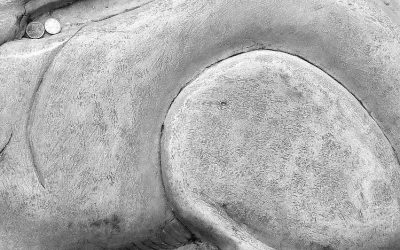The sacred forests of the Dai: Protecting the ancestors – protecting nature.
Among the indigenous peoples that inhabit the south of China, there are a good number that have near their villages a small grove that they consider sacred. Usually they believe that this forest is the place that the protective spirits of the village inhabit; they maintain taboos in order to impede any activity that can deteriorate it. The Daile who live in the south of Yunnan Province, in Xishuangbanna Prefecture, in spite of being nominally Buddhists for more than 1000 years; still preserve vestiges of their indigenous religion. We see this in several customs, including the respect for these sacred groves. In fact, the Daile people say:
«Buddhism is for the future life, but the cult of the gods of the village is what can help in the present.»
Almost every Dai village has its small sacred forest, where the clan’s ancestors, who are the protective gods of the village, are believed to live. The animals of those forests, the plants, the earth and the water, everything is sacred and cannot be taken away. It is totally forbidden, not only to cut trees, but to take anything, to hunt, to cultivate the earth, and even to gather the fruits of the trees that are left to rot in nature. In fact, during most of the year, except on the two occasions when ceremonies in honor of the ancestors are carried out, people usually don’t even enter these forests. A study carried out by Mr. Gao Lishi (1) has calculated that in only the prefecture of Xishuangbanna, the sacred forests of the Dai people protect a total of 100,000 hectares, comprising approximately five percent of its total area. In his study he has concluded that due to their long interaction with the forces of nature, the Dai understand that without forests, there is no water, and without water they could not cultivate the rice on which they depend to survive, neither could they fish to supplement their diet. The prefecture of Xishuangbanna is unique in China. For it’s semi-tropical climate and abundance of flora and fauna, it enjoys special protection, as demonstrated by the declaration of numerous Nature Reserves and the development of a model of tourism that largely focuses on a respect for nature. Today almost one third of Xishuangbanna is protected forest. Recent studies have evaluated in a scientific way the purpose these sacred forests serve in the conservation of nature. Their conclusions show that they carry out several fundamental purposes: 1. Protection of biodiversity. Since inside these forests the number of vegetal and animal species is far larger than outside. 2. Protection of the soil and atmospheric humidity. 3. Oxygen production. 4. Protection of animals that fight in a natural way against agricultural plagues. As a quiet place which people rarely enter, these forests are a favorite nesting place for different species of birds, that can later play a crucial role in the natural control of plagues. 5. Natural protection against tempests, fires and climatic changes. 6. Protection of the culture and traditions of the Dai. We see once again that indigenous knowledge, so often underestimated by the national majorities, has usually evolved through a long interaction with nature, and the desire to protect it arises from a belief that to protect nature is to protect their own lives. It is interesting to observe how the majorities are now realizing that modern exploitation of the resources of many minority regions cannot be successful if the indigenous traditions of these areas are not borne in mind. This is because the local peoples have long known how to appropriately use and conserve these lands, as pioneers of what is now referred to as sustainable development. (1) Gao Lishi. – Dai zu «longlin» chongbai dui shengdai gongxian huanbao (Contribution of the sacred forests of the Dai to the protection of nature). In «Dai zu wenhua lun» (Discussions about Dai culture) Yunnan Nationalities Press. Kunming. 2000
More posts on China ethnic groups
La primera descripción de la Religión de los Yi
La primera descripción de la Religión de los Yi Por el padre François Louis Crabouillet en 1872. La religión de los Lolos[1] es la de los hechiceros: apenas consiste en conjuraciones de espíritus malignos, según ellos, los únicos autores del mal. Sin ser devotos como...
El Conejo en el horóscopo chino
El Conejo en el horóscopo chino El conejo es un animal tierno y adorable, en el que destaca su extraordinaria fertilidad, tal vez por eso en el horóscopo chino es el animal más estrechamente relacionado con la luna, el astro femenino por excelencia. Esa fertilidad...
La Cabra en el horóscopo chino
La Cabra en el horóscopo chino La cabra y la oveja se confunden en la simbología de la cultura china, pues amabas se escriben con el carácter Yang 羊 , especificándose que la oveja da lana (绵羊) y la cabra vive en la montaña (山羊), en general ambas tienen un carácter...
El Cerdo en el Horóscopo chino
El Cerdo en el horóscopo chino El cerdo en la cultura china es un carácter ambiguo. Se le ve gordo y feo, alimentándose de las cosas más sucias, pero al mismo tiempo, su carne es la más apetitosa para los chinos. Su carne es "carne" en general, como arquetipo de carne...
El Dragón en el Horóscopo chino
El Dragón en el Horóscopo chino El dragón es el único de los animales del Horóscopo chino que sólo tiene una existencia imaginaria, y de hecho en el horóscopo de otros pueblos indígenas de China, es sustituido por otro animal. Aunque el dragón es animal imaginario,...
El Gallo en el horóscopo chino
El Gallo en el horóscopo chino En la cultura china, como en otras muchas, el gallo está estrechamente asociado al sol. En algunos mitos sólo se encarga de llamar al sol para que salga cada mañana, tarea en la que otros animales han fracasado, en otros el gallo es un...







